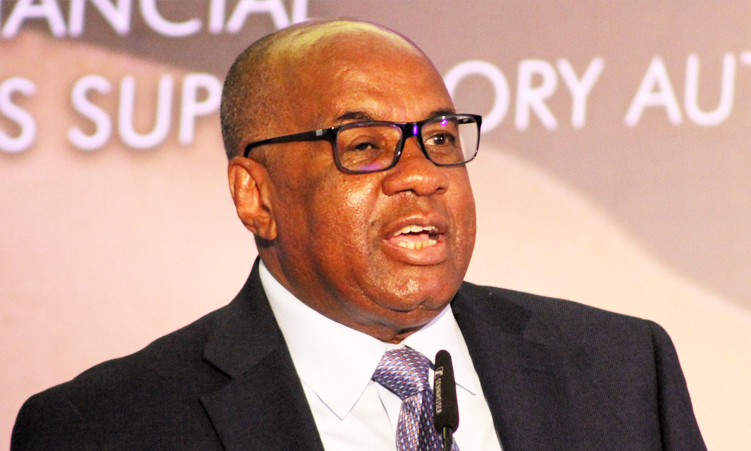Amid public criticism of exorbitant fees and charges leading to alleged excessive profits for commercial banks, the Bank of Namibia (BoN) maintains there is no inherent problem with banks generating profits.
Central bank governor Johannes !Gawaxab, while addressing a parliamentary standing committee on the matter yesterday, said banks should be allowed to make profits like any other business entity.
“We need to accept that banks are in business and they have a very strong profit motive. They are not charities,” he said.
!Gawaxab said global economic instability has been attributed to both bank failures and economic mismanagement, and emphasised the challenging nature of recovering from bank failures.
While acknowledging the public’s desire for reasonable bank fees, he said the BoN bears the responsibility of safeguarding the current soundness and stability of the local financial system.
“I personally don’t see any problem with banks making a profit,” he said.
!Gawaxab said the financial sector cannot afford to be on a collision course with society, adding that if society is prosperous, the financial sector benefits.
This year, the total number of complaints lodged at the BoN amounted to 68, with the highest (28%) being about fees and charges.
Refunds amounting to N$4,7 million were made by banks in seven cases during this year.
!Gawaxab and his team yesterday met with the parliamentary standing committee on economics and public administration to address concerns raised by member of parliament Veikko Nekundi in April.
Nekundi submitted a motion to discuss the possibility of investigating overcharging and the unethical nature of multiple charges by local commercial banks.
He said despite economic challenges, particularly amid the most difficult phases of the Covid-19 pandemic, the dominant structures of banks remained focused on maximising profits, unabashedly targeting the already most economically disadvantaged individuals.
“These bank charges are not only higher, they are unjustifiable and unreasonably multiple,” Nekundi said.
He said white clients are being advantaged as their loans are refinanced, reconfigured and restructured.
“Surely this has a direct bearing on asset repossession of black people. Without the benefit of debt restructuring or debt refinancing, blacks remain highly vulnerable to default,” Nekundi said.
Addressing !Gawaxab, Natangwe Iithete, the chairperson of the standing committee, emphasised the necessity of new policies focused on achieving economic equality.
Ithete said historical apartheid laws have provided white Namibians with an advantage, leading to unbalanced socio-economic policies.
He said commercial banks are sustaining this disparity.
“The Constitution speaks about equality. You cannot be pushing black people and white people at the same speed. There is nothing wrong with coming up with laws that push black people in front until they are all on the same level,” Iithete said.
!Gawaxab said market conduct in the commercial banking industry is a gap that needs to be addressed through appropriate measures.
“If we see there are market conduct issues, we need to discuss that, because today’s profit for banks is tomorrow’s capital,” he said.
Meanwhile, following recent revisions of the banking law, the government has the power to supervise and regulate the fees and charges levied by banks.
The implementation of this provision commenced on 8 August, coinciding with the enactment of the amendments to the Banking Institutions Act of 2023.
Stay informed with The Namibian – your source for credible journalism. Get in-depth reporting and opinions for
only N$85 a month. Invest in journalism, invest in democracy –
Subscribe Now!










